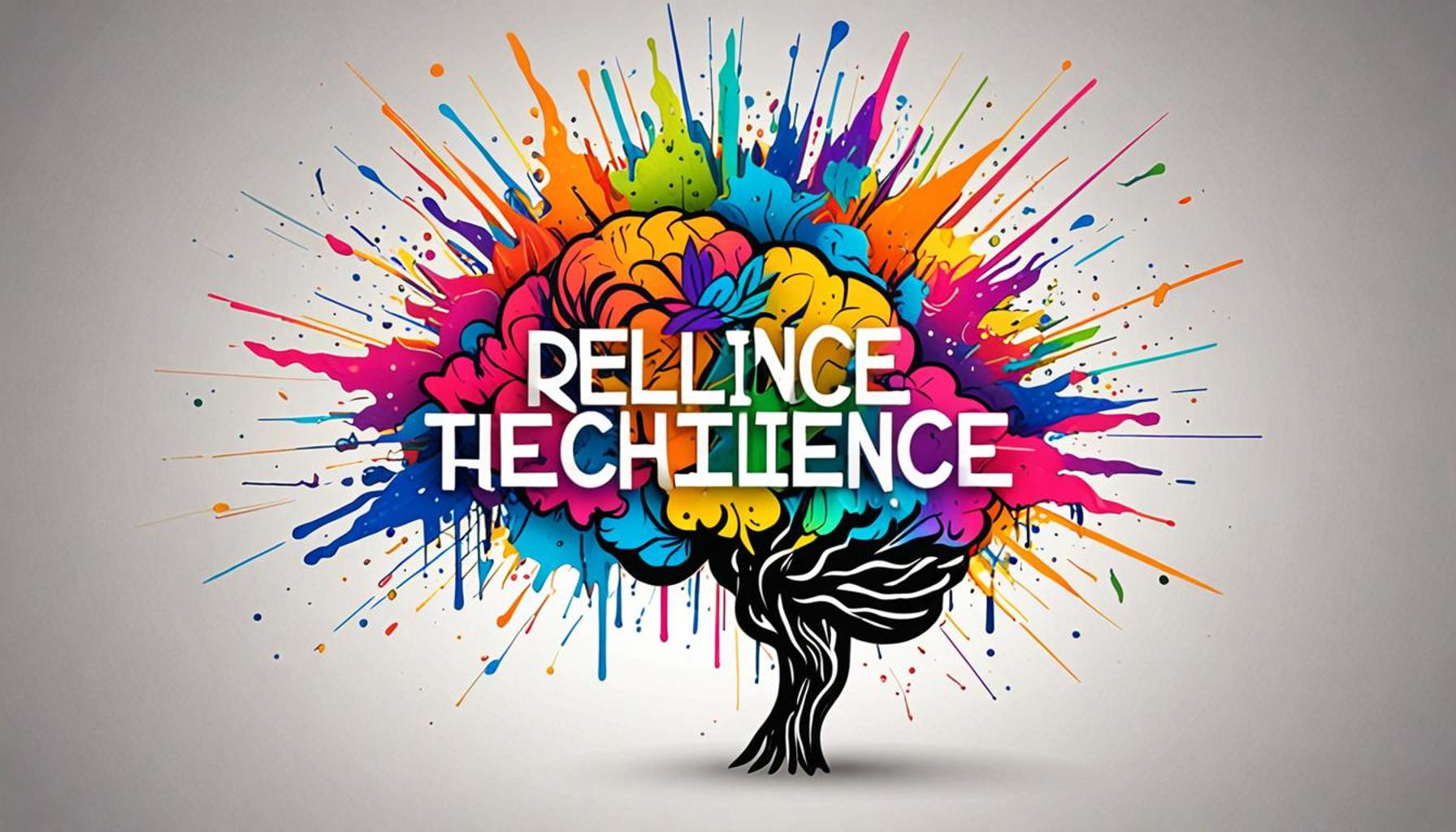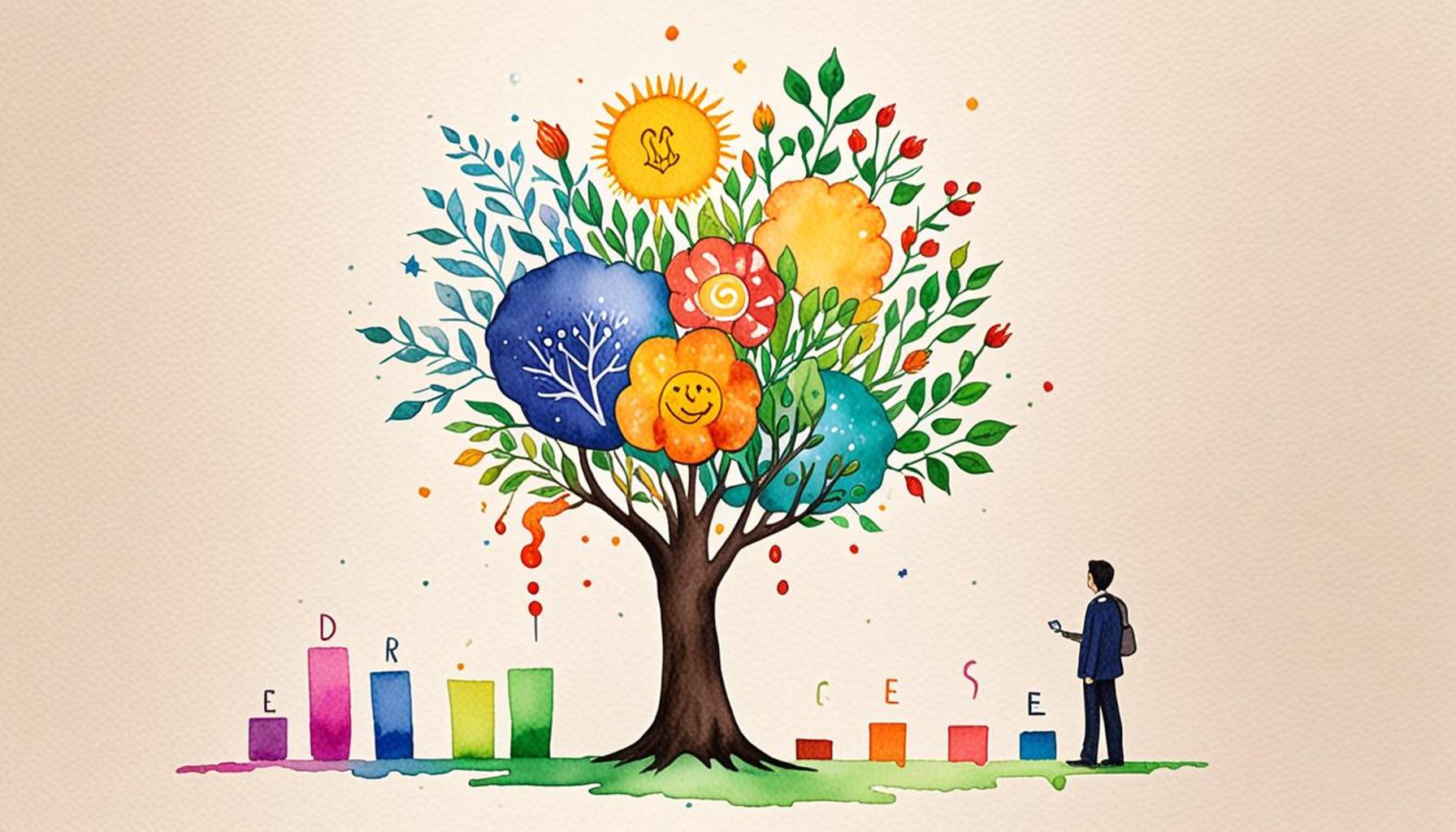Resilience and Lifelong Learning: Techniques for Adapting to Changes and Challenges

Understanding Resilience
In today’s fast-paced world, we face an ever-changing landscape filled with uncertainties. From economic shifts and political upheavals to environmental challenges and technological advances, individuals and communities must adapt quickly to thrive. The ability to bounce back from adversity is vital, making resilience a crucial trait. Accompanying this is the concept of lifelong learning, which serves as an ongoing process that enriches our knowledge and skill sets to keep pace with change.
Key Characteristics of Resilient Individuals
Resilient individuals often exhibit a variety of characteristics that empower them to navigate challenges effectively. Some key traits include:
- Adaptability: This is the ability to adjust thoughts and behaviors in response to new challenges. For instance, when faced with job losses in a volatile economy, resilient people may pivot their career paths or embrace entrepreneurship, exploring sectors like technology or renewable energy that are gaining traction in Nigeria.
- Growth mindset: Resilient individuals view failures as opportunities to learn rather than setbacks. For example, rather than becoming discouraged by a failed business venture, they analyze what went wrong and apply those lessons to future endeavors, embodying the spirit of continuous improvement.
- Social support: Building and maintaining networks that provide emotional and practical backing is crucial. In Nigeria, communities often come together in times of crisis, whether through local organizations or informal networks, showcasing the power of collective resilience.
Lifelong Learning as a Complement to Resilience
Lifelong learning complements resilience by equipping individuals with skills necessary to thrive in a changing environment. This approach includes:
- Continuous education: Pursuing courses and workshops is essential for staying current in one’s field. Many universities and online platforms now offer courses tailored to the needs of Nigerian professionals, covering emerging technologies or new business practices.
- Self-directed learning: Taking the initiative to explore subjects of interest beyond formal education helps individuals remain proactive in their personal and professional development. For instance, one might delve into digital marketing strategies or web development through online tutorials, enhancing their employability.
- Networking: Engaging with peers to exchange knowledge and experiences can lead to innovative ideas and collaborations. In Nigeria, this often happens in informal settings like local meetups, where young entrepreneurs share insights and resources.
Nigeria stands at the crossroads of rapid urbanization and evolving job markets, emphasizing the necessity of these principles. As we navigate through the complexities of adaptation and the need for continuous growth, embracing resilience and lifelong learning will be critical in overcoming the challenges ahead. By integrating these practices into daily life, individuals can significantly enhance their capacity to thrive even amidst change.
RECOMMENDED: Check out this similar article

Practical Techniques for Building Resilience
As we delve deeper into the essence of resilience, it becomes evident that individuals can adopt specific techniques to cultivate this vital quality. The journey towards resilience is not solely about inherent traits but also involves practical strategies that can be learned and implemented. In the context of Nigeria, where diverse challenges arise from economic and social fluctuations, understanding and applying these techniques can significantly enhance an individual’s capacity to adapt.
Effective Techniques for Cultivating Resilience
Several practical techniques can aid individuals in fostering resilience. These methods not only empower individuals to better respond to life’s challenges but also support their ongoing journey of lifelong learning.
- Mindfulness and Stress Management: Mastering mindfulness techniques—such as meditation and deep-breathing practices—can help individuals remain grounded and reduce anxiety. For instance, participating in community classes centered around meditation can enhance one’s ability to focus, making it easier to tackle challenges effectively. In Nigeria, some wellness centers offer programs specifically designed to teach stress management, empowering attendees to take charge of their mental well-being.
- Setting Achievable Goals: Establishing clear, achievable goals plays a significant role in resilience. When individuals set small, realistic objectives, it not only provides direction but also boosts confidence when these goals are accomplished. In the context of education or career development, breaking larger ambitions into smaller steps can be particularly effective—a concept encouraged by educational coaches and motivational speakers across Nigeria.
- Embracing Change: Developing a positive relationship with change is crucial for resilience. Individuals are encouraged to view change as a natural part of life rather than an obstacle. Workshops on adaptability, often held in universities and community centers, promote discussions that help participants share experiences of overcoming change, thus fostering a collective understanding of resilience.
- Seeking Feedback and Reflection: Regularly seeking constructive feedback and engaging in self-reflection are essential for personal growth. By understanding one’s strengths and areas for improvement, individuals can make informed decisions on how to develop their skills. In the Nigerian context, mentorship programs are increasingly popular, providing platforms for collaboration and feedback among professionals from various fields.
Each of these techniques underscores the importance of being proactive in the face of adversity. Resilience does not occur in isolation; rather, it is a life skill that individuals can develop through conscious effort and a commitment to lifelong learning. By embracing these practices, Nigerians can enhance their resilience, empowering themselves to navigate the complexities of today’s world and emerge stronger from their challenges.
| Advantage | Description |
|---|---|
| Enhanced Problem-Solving Skills | Fostering resilience encourages individuals to embrace challenges as opportunities to innovate and improve. |
| Adaptable Mindset | Lifelong learning nurtures an adaptable mindset, allowing individuals to shift gears smoothly in response to unforeseen circumstances. |
| Greater Emotional Intelligence | Developing resilience enhances emotional intelligence, leading to better interpersonal relationships and conflict resolution. |
| Continued Personal Growth | A commitment to lifelong learning opens pathways for personal growth, enabling one to explore diverse knowledge and skills. |
The techniques of resilience and lifelong learning play crucial roles in our journey through life’s inevitable challenges. Adapting to change not only strengthens personal character but also enriches professional abilities. By embracing a continuous learning approach, individuals foster a rich skill set that is invaluable in a rapidly changing environment. The empowerment associated with these techniques instills a sense of confidence, propelling individuals toward success in both personal and professional arenas. ### The Importance of Resilience TrainingEngaging in resilience training establishes a foundational strength that enhances overall mental well-being. Providing workshops or online courses that focus on building resilience equips individuals with the necessary tools to face adversity head-on. Real-world applications of these strategies illustrate their effectiveness in navigating life’s complexities, proving invaluable as we encounter various life transitions. ### Lifelong Learning: A Gateway to InnovationLifelong learning is not merely about academic enhancement; it promotes a culture of innovation and adaptability. By fostering an environment where ongoing education is valued, we can support individuals in harnessing creativity and flexibility, vital components in today’s workforce. As challenges evolve, so must our approaches to learning, ensuring we remain equipped to tackle various obstacles strategically. Exploring these techniques further, and integrating them into our lives, has the potential to transform how we approach change and challenges in a meaningful way. Keep reading to discover specific strategies that can help you cultivate resilience and become a lifelong learner.
SEE ALSO: Click here to read another article
Cultivating a Growth Mindset for Enhanced Resilience
In the quest for resilience, adopting a growth mindset is pivotal. This psychological concept, popularized by psychologist Carol Dweck, emphasizes the belief that abilities and intelligence can be developed with effort, learning, and persistence. For Nigerians navigating a landscape of continuous change, cultivating this mindset can significantly influence how they face challenges and achieve their goals.
Understanding the Growth Mindset
The growth mindset contrasts sharply with a fixed mindset, which perceives abilities as static. Individuals with a growth mindset embrace challenges, see failures as opportunities for learning, and find inspiration in the success of others. As Nigeria’s economy evolves and technological advancements accelerate, approaching education and career hurdles with a growth mindset can transform obstacles into stepping stones toward success.
Practical Steps to Foster a Growth Mindset
Here are several effective strategies to help cultivate a growth mindset, thereby enhancing resilience:
- Promote Learning from Failure: Instead of fearing failure, individuals should view it as a learning opportunity. For instance, local entrepreneurs often emphasize taking calculated risks in their businesses. Workshops that focus on shared experiences of failure and success can be instrumental in teaching others how to bounce back stronger.
- Encourage Curiosity: Curiosity fuels lifelong learning. By asking questions and pursuing interests, individuals can continuously expand their knowledge base. Community centers in Nigeria often host classes on a variety of subjects, encouraging participation in new areas that stretch one’s thinking and capabilities.
- Focus on Effort and Process: Celebrating effort over innate talent nurtures resilience. Parents and educators can support children by acknowledging hard work rather than just achievements. For example, schools that highlight progress reports on student learning help cultivate a culture of perseverance and improvement.
- Engage in Continuous Education: Lifelong learning is essential in maintaining both relevance and adaptability in a fast-paced world. For instance, free online courses provided by platforms such as Coursera or local skill acquisition programs can empower Nigerians with new skills and knowledge, reinforcing the idea that learning never stops.
Networking and Collaboration for Resilience
Moreover, building a resilient support system through networking and collaboration cannot be overstated. Engaging with peers can provide emotional support, as well as practical advice and shared insights that help navigate challenges. In Nigeria, joining professional associations or community-focused groups can offer vital networking opportunities for individuals seeking mentorship or collaborative projects that foster resilience through shared experiences.
Research suggests that strong social connections not only enhance emotional well-being but also encourage perseverance in the face of adversity. Platforms such as LinkedIn and local professional hubs play crucial roles in connecting individuals with like-minded professionals, thereby cultivating a community dedicated to resilience and continuous learning.
Ultimately, integrating a growth mindset into daily practices equips individuals to face inevitable changes and challenges head-on. By emphasizing learning, adaptation, and community, Nigerians can foster an environment rich in resilience, ensuring they not only survive but thrive in an increasingly dynamic world.
CHECK OUT: Click here to explore more
Conclusion: Embracing Change Through Resilience and Lifelong Learning
As we navigate the complexities of today’s world, the synergy of resilience and lifelong learning emerges as a cornerstone for personal and professional growth. For Nigerians, fostering a mindset that embraces change not only paves the way for overcoming immediate challenges but also enriches future opportunities. Understanding that abilities can be developed through effort and learning fosters resilience in the face of setbacks. By cultivating a growth mindset, individuals can transform struggles into stepping stones, thereby adapting more effectively to an ever-evolving environment.
The strategies discussed through this article—viewing failure as a learning opportunity, nurturing curiosity, and prioritizing continuous education—empower individuals to embrace a culture of resilience. Networking and collaboration further enhance this journey, providing essential support systems that validate the shared human experience during tough times. This interconnectedness is especially vital in Nigeria, where communal ties often define social and economic landscapes.
Ultimately, as the landscape changes—economically, technologically, and socially—cultivating resilience through lifelong learning becomes indispensable. Nigerians are called to actively engage in their growth journeys, leveraging available resources and community support. By fostering a proactive approach to learning and resilience, individuals not only equip themselves to face challenges but also contribute to national development. In a world marked by change, let us pledge to be perpetual learners, drawing strength from our experiences and embracing the adventures that lie ahead.


